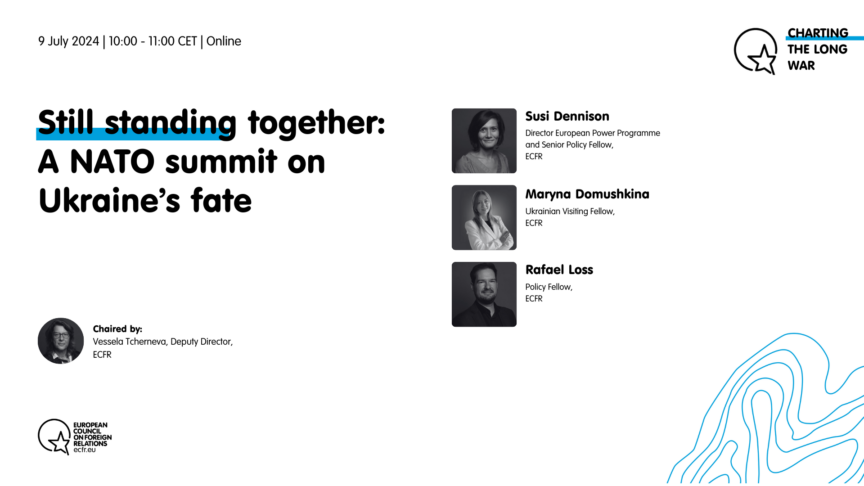
Still standing together: A NATO summit on Ukraine’s fate
As leaders are about to take pivotal decisions for Ukraine’s fate at the NATO summit, join us for a discussion about pathways and policy options for…

As leaders are about to take pivotal decisions for Ukraine’s fate at the NATO summit, join us for a discussion about pathways and policy options for…
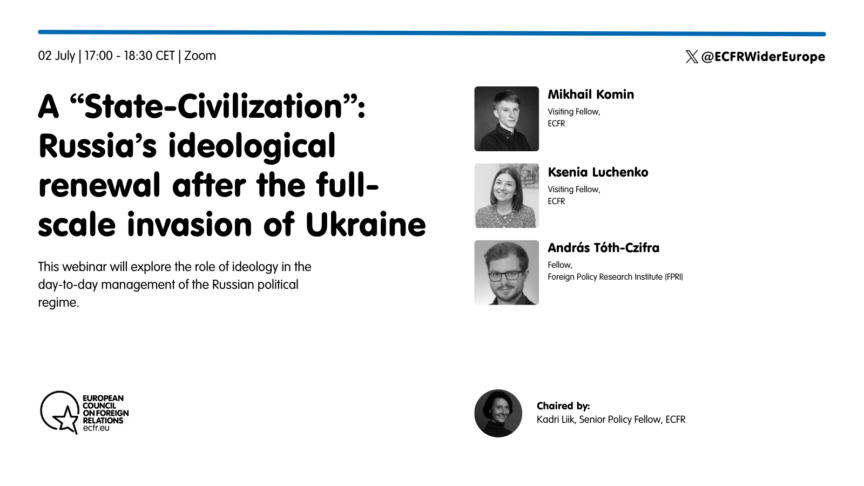
This webinar will explore the role of ideology in the day-to-day management of the Russian political regime

The Kremlin is creating a new, more unified ideology, which it is disseminating among the Russian population and using to attract global south countries to a new conservative alliance
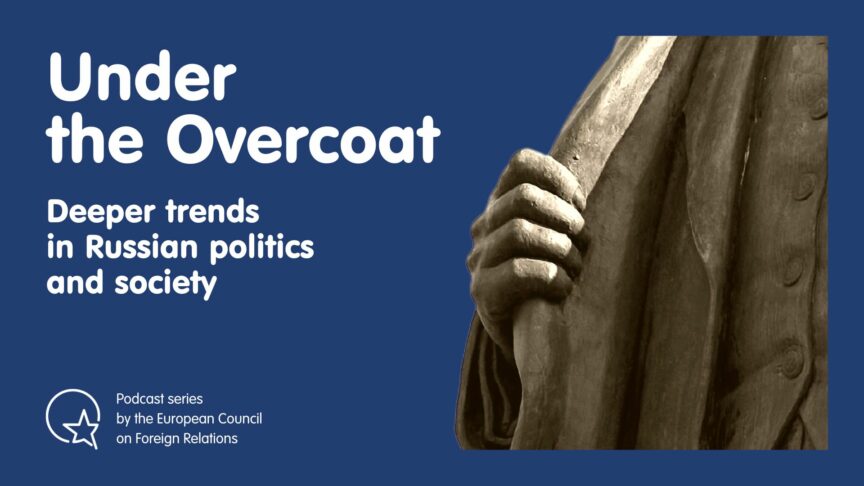
In this final episode, we discuss how the war has transformed Russian society and political culture, and outline possible scenarios for its medium to long term political trajectory
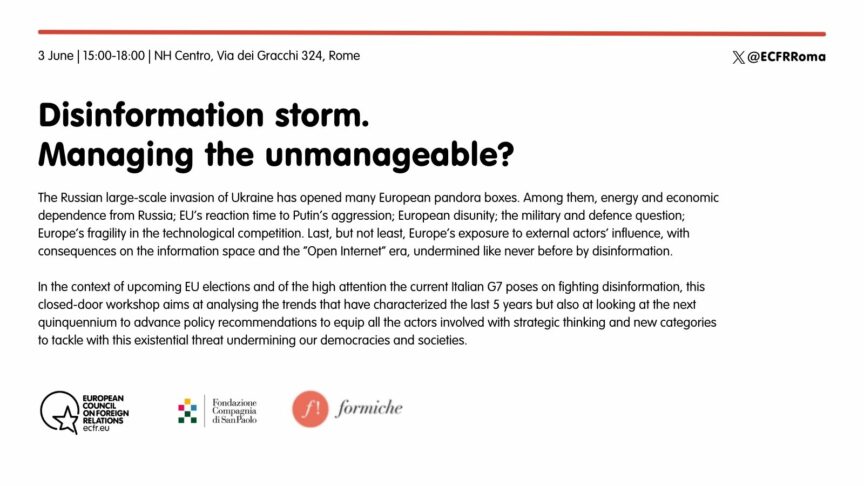
The Russian large-scale invasion of Ukraine has opened many European pandora boxes. Among them, energy and economic dependence from Russia; EU’s reaction time to Putin’s aggression; European disunity; the military and defense question; Europe’s fragility in the technological competition. Last, but not least, Europe’s exposure to external actors’ influence, with consequences on the information space and the “Open Internet” era, undermined like never before by disinformation

In the lead up to the European Parliament election, rising Russian disinformation threatens to sway voters. No matter the election result, the EU should take coordinated and assertive action

The Ukrainian world heavyweight boxing champion beat back a giant opponent, but his country can’t defeat Russia on its own
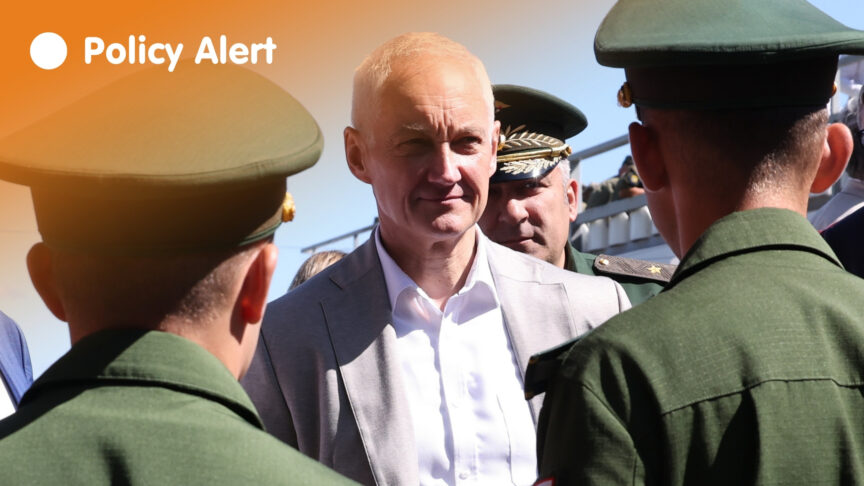
Putin’s appointment of Andrei Belousov as defence minister signals the Kremlin’s push to rapidly modernise the Russian military – and further reshuffles may be on the horizon
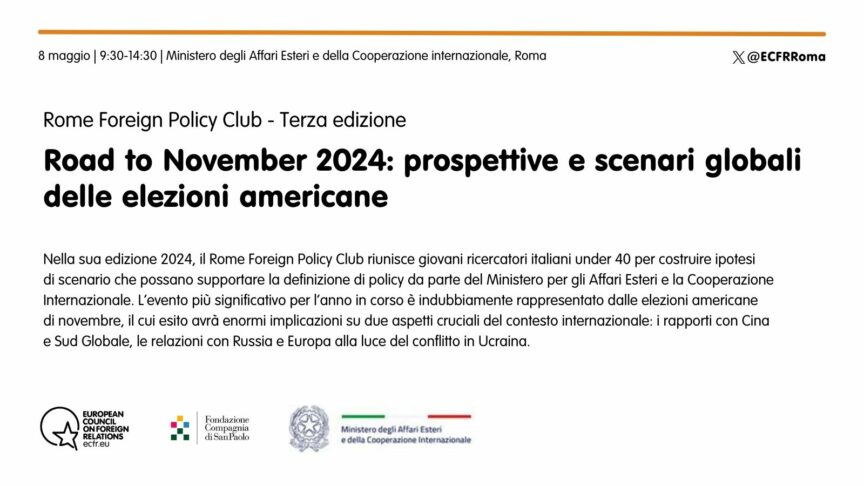
Nella sua edizione 2024, il Rome Foreign Policy Club riunisce giovani ricercatori italiani under 40 per costruire ipotesi di scenario che possano supportare la definizione di policy da parte del Ministero per gli Affari Esteri e la Cooperazione Internazionale. L’evento più significativo per l’anno in corso è indubbiamente rappresentato dalle elezioni americane di novembre il cui esito avrà enormi implicazioni su due aspetti cruciali del contesto internazionale: i rapporti con Cina e Sud Globale e le relazioni con Mosca alla luce del conflitto in Ucraina

This podcast explores deeper trends beneath the surface of Russia’s daily politics. In this episode, we delve deeper into Russia’s foreign policy, taking a long-term perspective.

The Kremlin is creating a new, more unified ideology, which it is disseminating among the Russian population and using to attract global south countries to a new conservative alliance
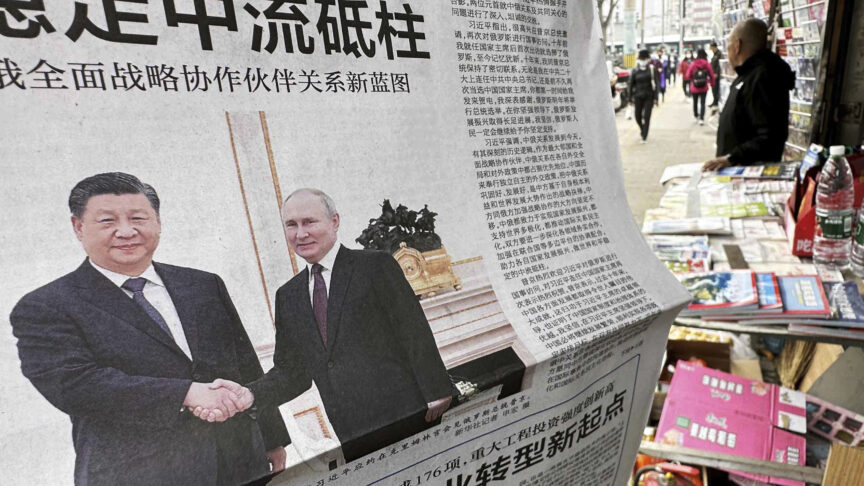
Chinese thinkers are drawing four key lessons from Russia’s war on Ukraine, informing their views on: America, Russia, Taiwan, and economic interdependence with the West
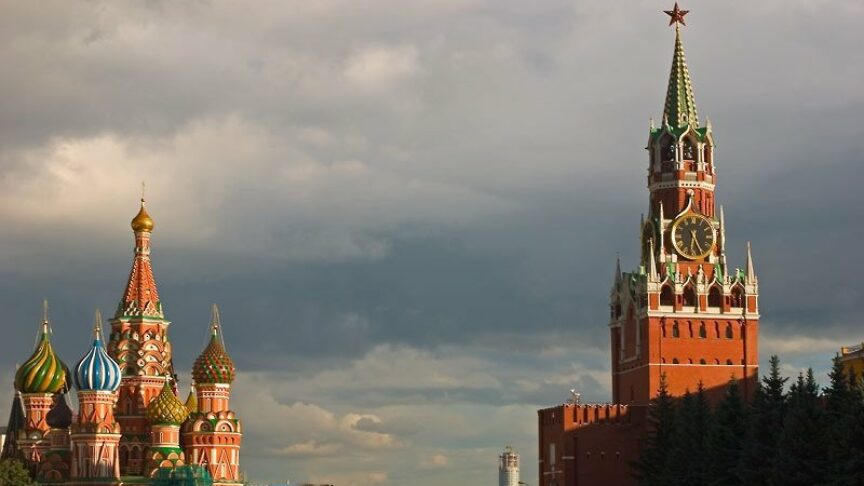
ECFR’s new EU-Russia power audit reveals a picture of success in decoupling from Moscow – and suggests the bloc could emerge stronger from the crisis
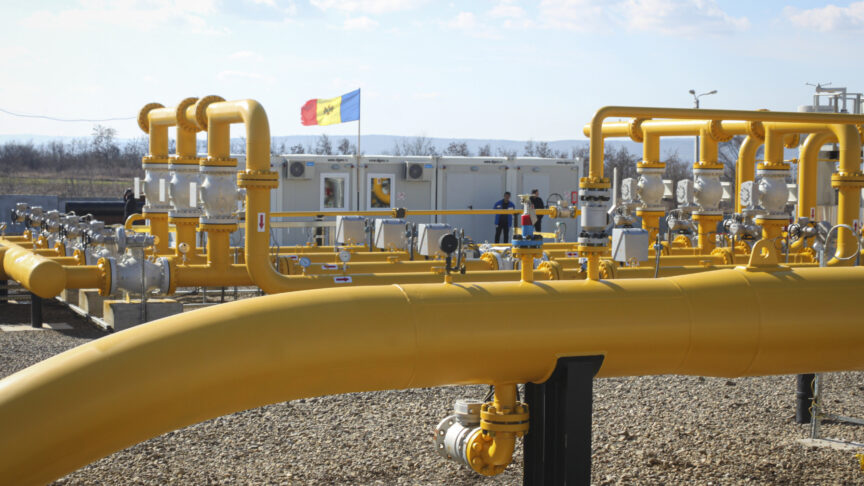
If Moldova can resist Russia’s weaponisation of gas and get through this winter, it should be able to make strong progress on its programme of reforms
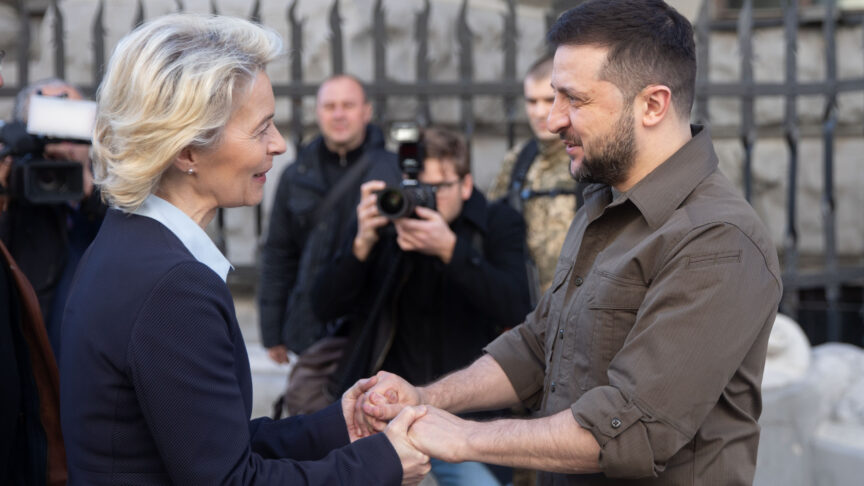
To signal their commitment to Ukraine, Europeans should agree a ‘long-war plan’ of assistance against Russian aggression. This would include a ‘security compact,’ security assurances, and economic and energy support
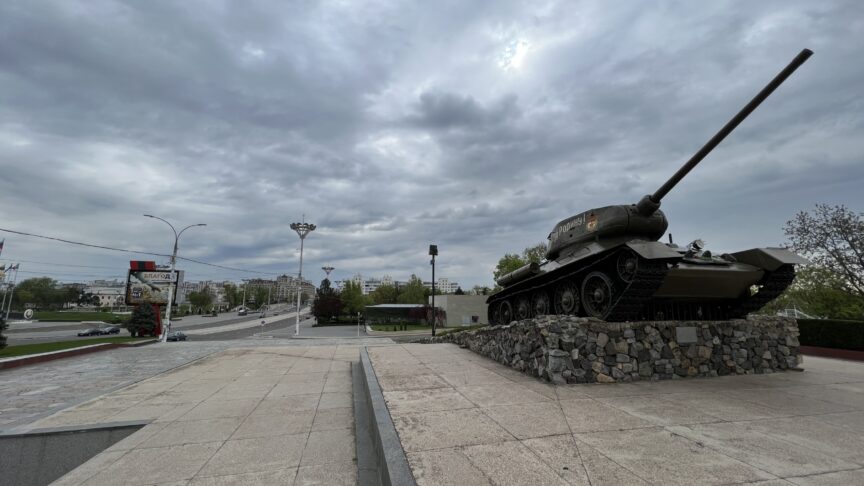
Russia could target Moldova by embarking on a limited-scope but overt military invasion – or by pursuing more covert hybrid aggression scenarios. Moldova and the EU need to embrace “active resilience” to address this
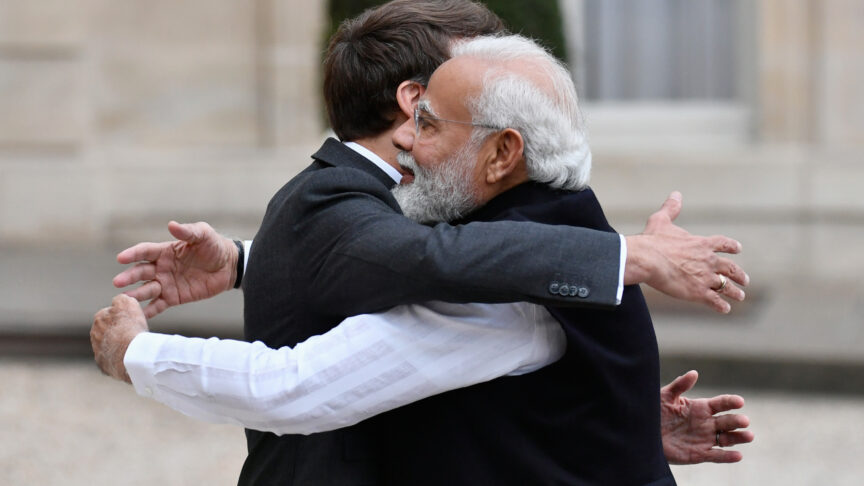
Europeans have found India’s position on the Ukraine war frustrating. But, although it is dependent on Russia for its arms, and has huge worries about China, India is actually moving inexorably closer to the West
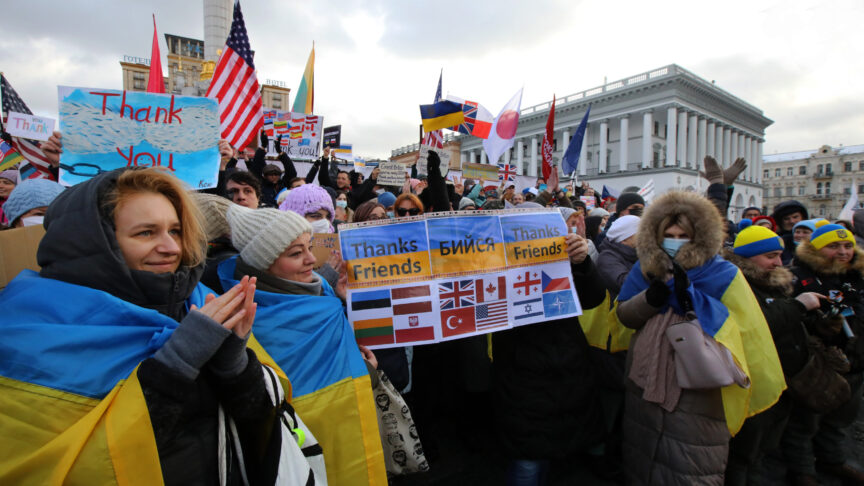
Europeans are united around three key ideas about the war in Ukraine. The crisis will likely test their readiness to defend the European security order
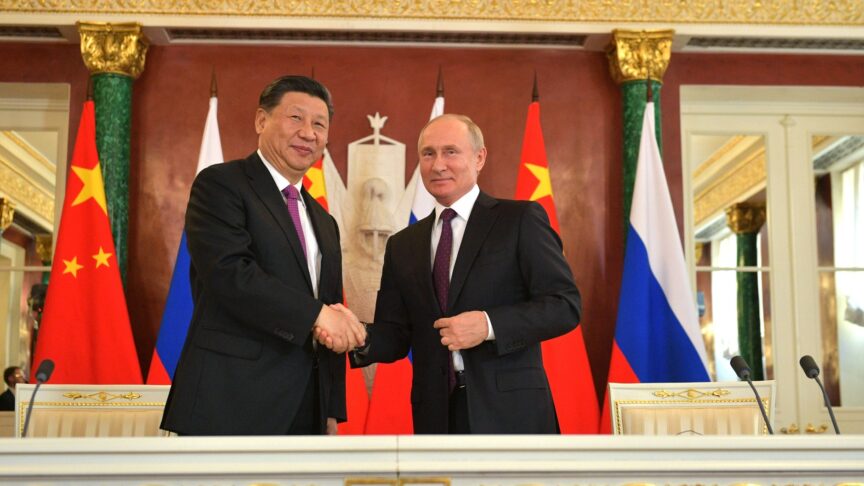
The West does not have an opportunity to prompt a policy U-turn in Moscow that divides Russia and China. But it could give Russia space to hedge against China in key areas
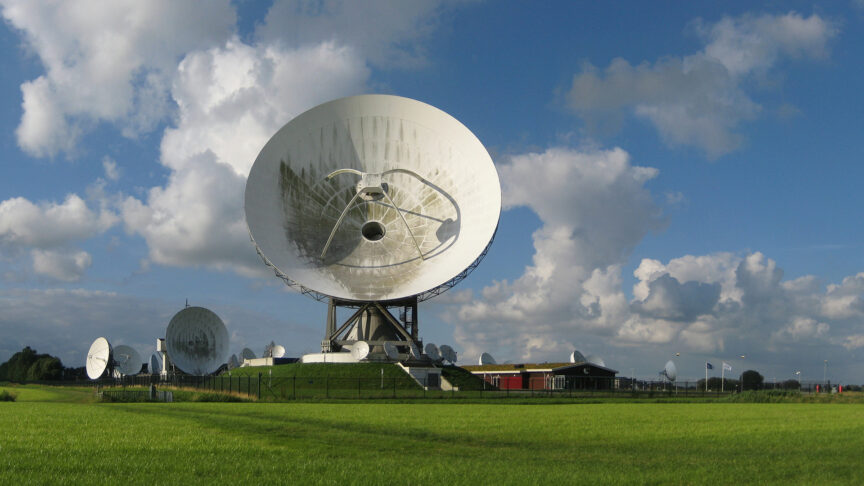
The EU should offer Georgia, Moldova, and Ukraine a new intelligence and security compact to help strengthen their security against Russia

In the lead up to the European Parliament election, rising Russian disinformation threatens to sway voters. No matter the election result, the EU should take coordinated and assertive action

The Ukrainian world heavyweight boxing champion beat back a giant opponent, but his country can’t defeat Russia on its own

Putin’s appointment of Andrei Belousov as defence minister signals the Kremlin’s push to rapidly modernise the Russian military – and further reshuffles may be on the horizon
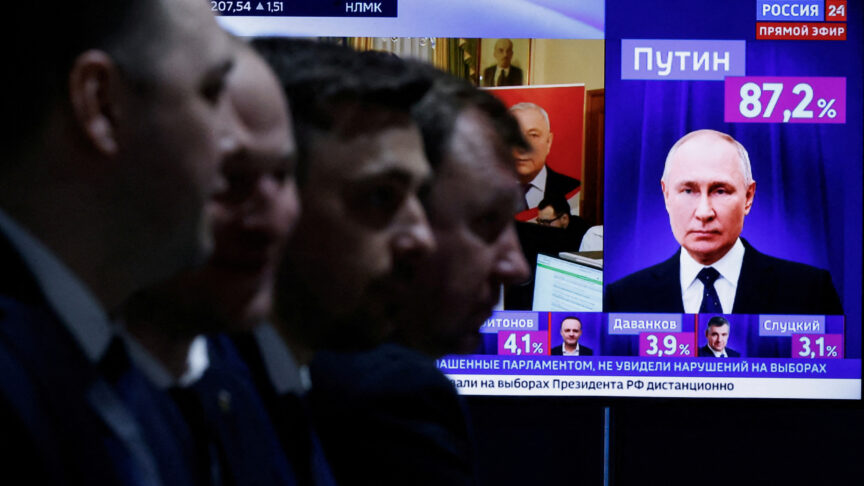
Vladimir Putin’s ‘historic’ election result demonstrates his absolute control over the administrative system, but could also encourage him to make big political mistakes
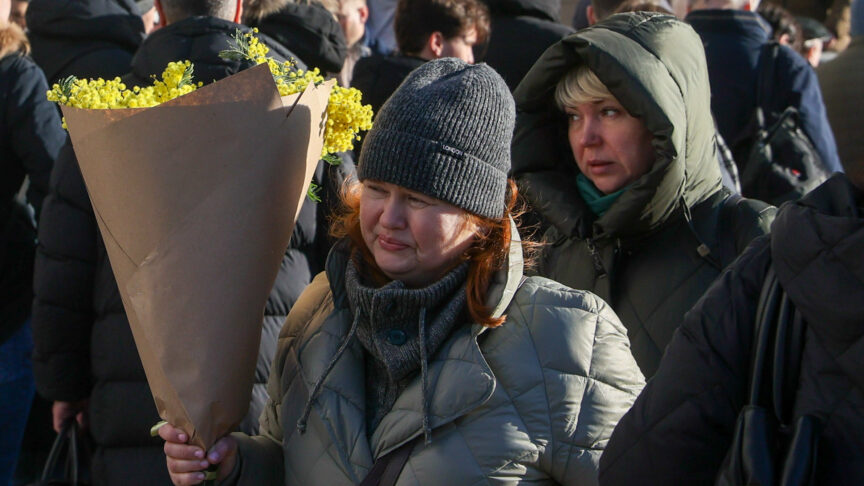
The biggest threat to Vladimir Putin’s strongman rule may just come from women – especially when they base their activism on the very ‘traditional values’ he purports to venerate
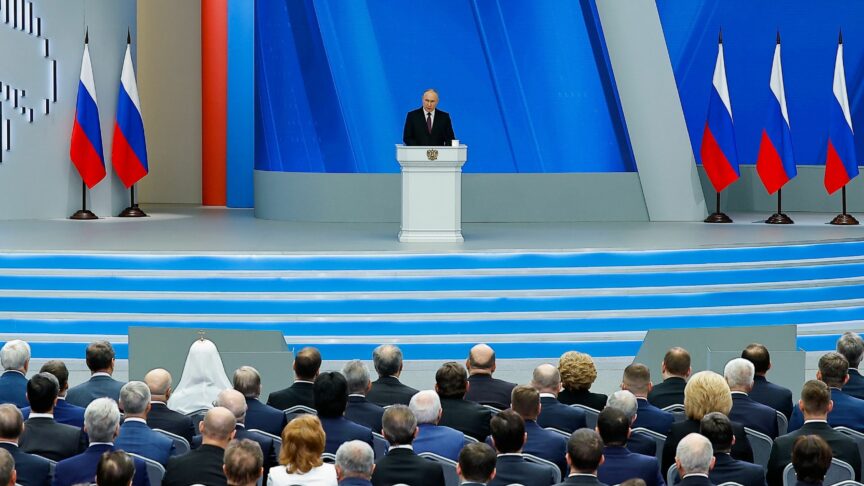
Vladimir Putin is ramping up his radical-right credentials. This reinforces his grip on power in Russia, but it could also increase his influence worldwide
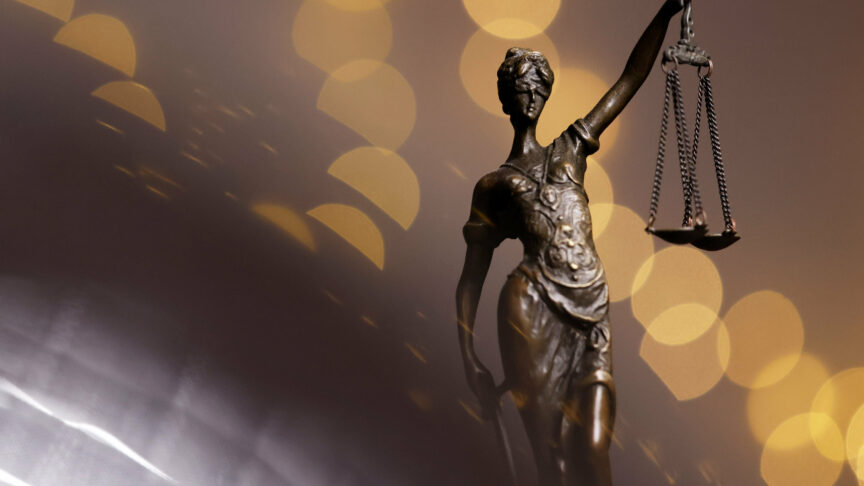
Ukraine’s Western allies are discussing the possibility of confiscating frozen Russian sovereign assets to support Ukraine’s reconstruction. But if confiscated during the war, these funds could provide desperately needed – and stable – financial support for Kyiv’s war effort
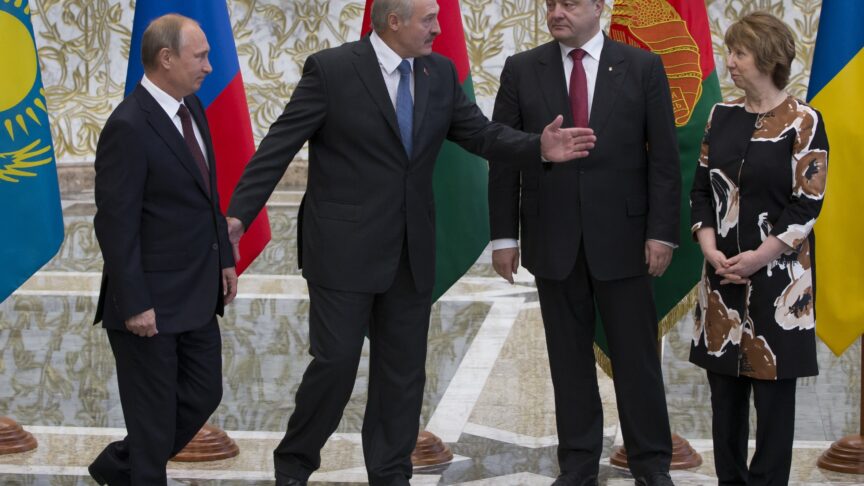
Western policymakers should study the lessons of the Minsk agreements – and drop any illusions about the ways in which Russia supposedly acts
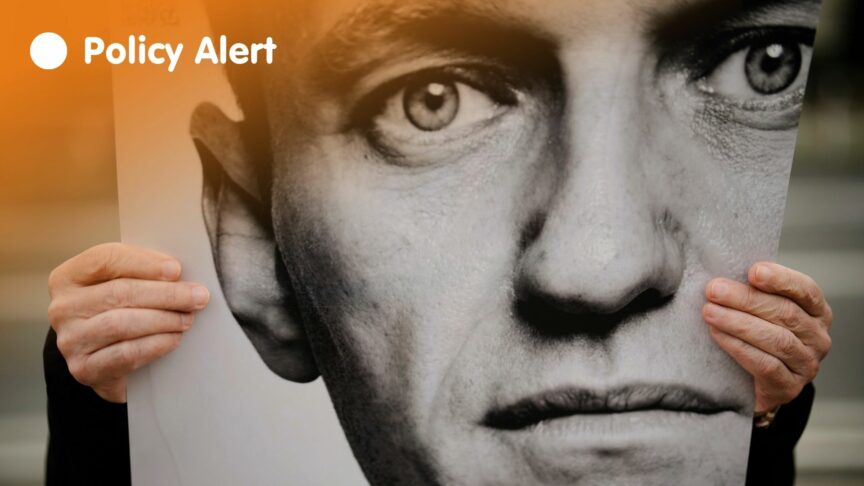
The death of Alexei Navalny marks the end of one era in Russia’s modern history – and the consolidation of the regime’s conservative turn
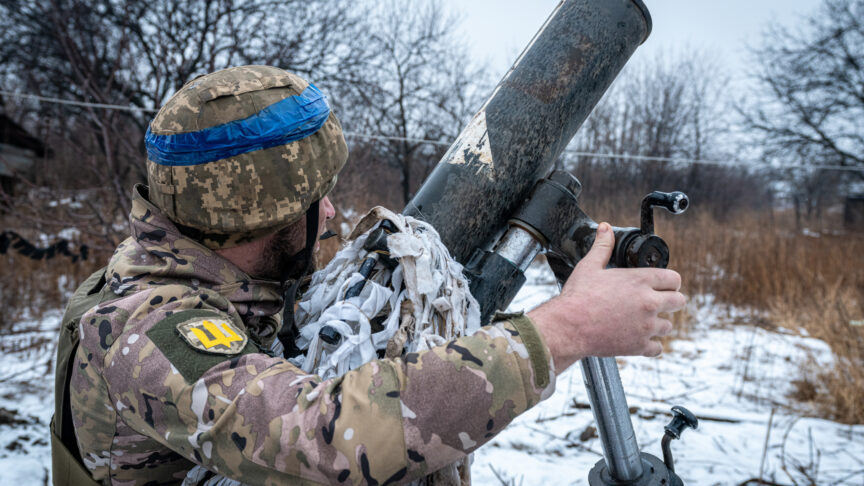
Russia has gained the upper hand in its war on Ukraine. To reverse Moscow’s progress, the West will need to invest more in supporting Kyiv. With this in mind, here are three scenarios for what could happen in 2024
What role does Russia play in the breakaway regions of Eastern Europe?
Locked in a shadowy life between war and peace, “grey zones” now litter the map of Eastern Europe
Following high level ministerial meetings on Ukraine, ECFR's Wider Europe team report on the implementation the Minsk agreement

In this final episode, we discuss how the war has transformed Russian society and political culture, and outline possible scenarios for its medium to long term political trajectory

This podcast explores deeper trends beneath the surface of Russia’s daily politics. In this episode, we delve deeper into Russia’s foreign policy, taking a long-term perspective.

This podcast explores deeper trends beneath the surface of Russia’s daily politics. In this episode, we examine public opinion in Russia

This podcast explores deeper trends beneath the surface of Russia’s daily politics. In this episode, we dive deeper into Russia’s economy during the war on Ukraine

This podcast explores deeper trends beneath the surface of Russia’s daily politics. In this episode, we analyse who is really in charge of the Russian military and its nuclear weapons.

How do Russian officials “coexist” with the war nearly two years after the invasion? How has the bureaucratic system adapted to the requirements of the war?…

The Russian Orthodox Church is supporting Russia’s war on Ukraine in its sermons, sending priests to the front, and collecting humanitarian aid for soldiers and…

On 1 September, Russian high schools transitioned to new “patriotic” history textbooks authored by one of Russia’s staunchest conservatives, former culture minister Vladimir Medinsky. How…
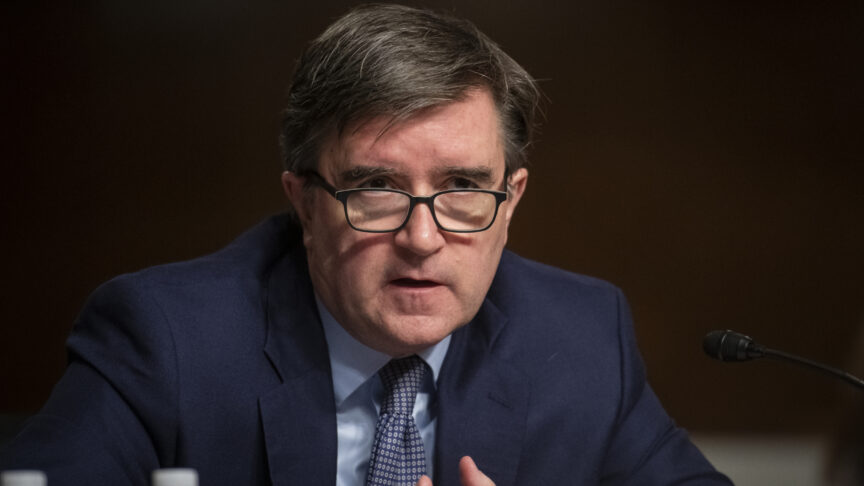
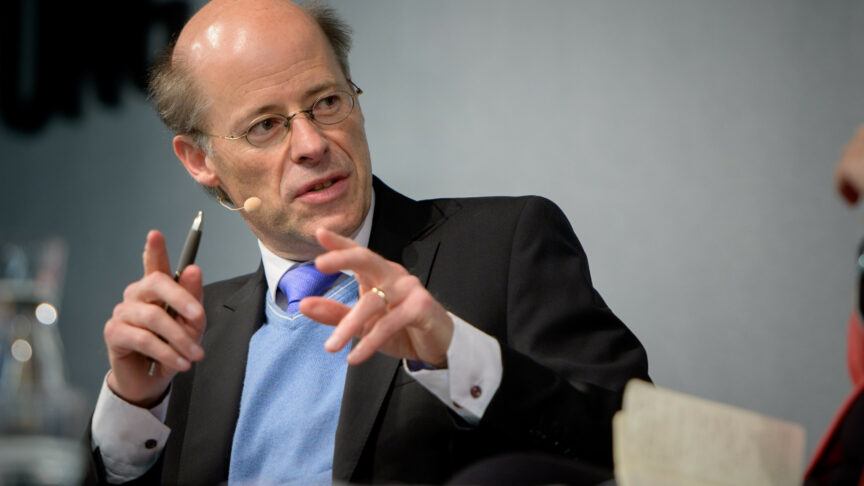
Mark Leonard invited Michael Thumann to talk about his new book “Revenge: How Putin created the most threatening regime in the world”

As leaders are about to take pivotal decisions for Ukraine’s fate at the NATO summit, join us for a discussion about pathways and policy options for…

This webinar will explore the role of ideology in the day-to-day management of the Russian political regime

The Russian large-scale invasion of Ukraine has opened many European pandora boxes. Among them, energy and economic dependence from Russia; EU’s reaction time to Putin’s aggression; European disunity; the military and defense question; Europe’s fragility in the technological competition. Last, but not least, Europe’s exposure to external actors’ influence, with consequences on the information space and the “Open Internet” era, undermined like never before by disinformation

Nella sua edizione 2024, il Rome Foreign Policy Club riunisce giovani ricercatori italiani under 40 per costruire ipotesi di scenario che possano supportare la definizione di policy da parte del Ministero per gli Affari Esteri e la Cooperazione Internazionale. L’evento più significativo per l’anno in corso è indubbiamente rappresentato dalle elezioni americane di novembre il cui esito avrà enormi implicazioni su due aspetti cruciali del contesto internazionale: i rapporti con Cina e Sud Globale e le relazioni con Mosca alla luce del conflitto in Ucraina
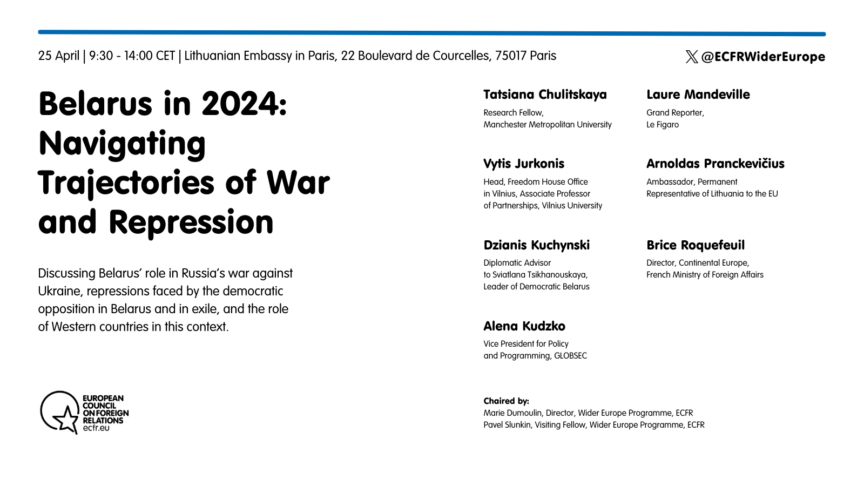
This event will discuss Belarus’ role in Russia’s war against Ukraine and the repressions and threats faced by the democratic opposition in Belarus and in exile. It will also explore possible actions by Western countries in this context
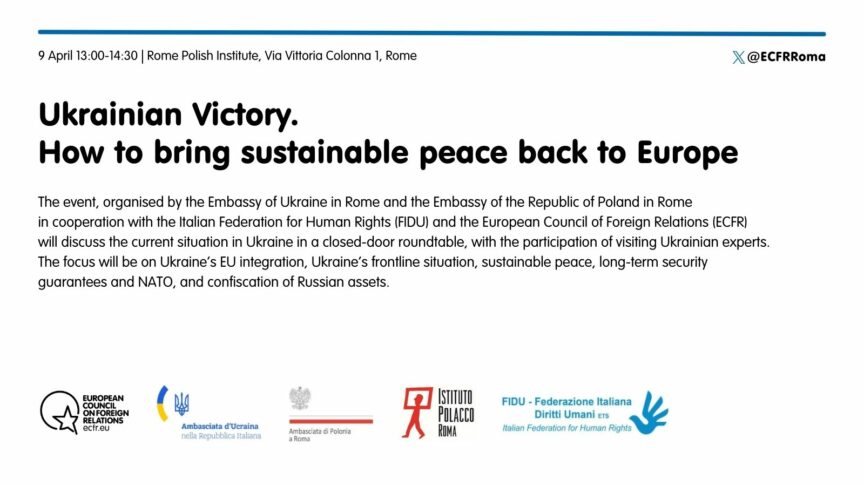
The event, organised by the Embassy of Ukraine in Rome and the Embassy of the Republic of Poland in Rome in cooperation with the Italian Federation for Human Rights (FIDU) and the European Council on Foreign Relations (ECFR) will discuss the current situation in Ukraine in a closed-door roundtable, with the participation of visiting Ukrainian experts
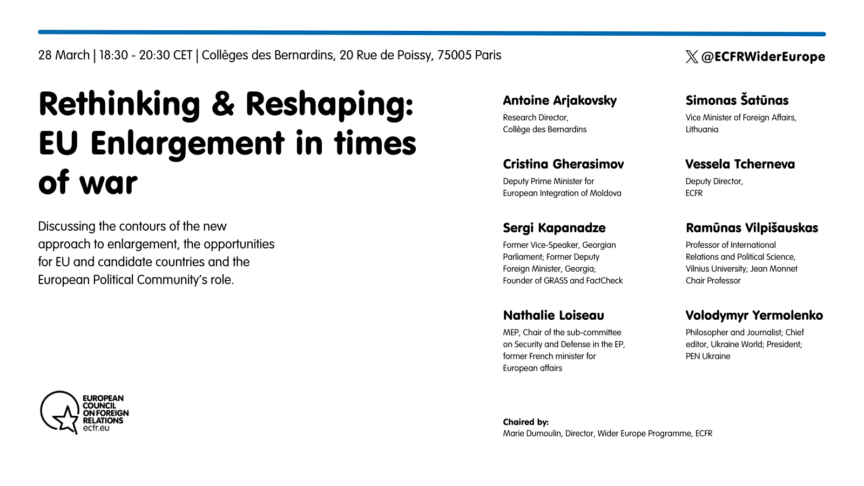
Russia’s war against Ukraine has prompted European policymakers to rethink their approach to enlargement. What form does this new approach take, what are the opportunities for EU and candidate countries, and what is the European Political Community’s role?
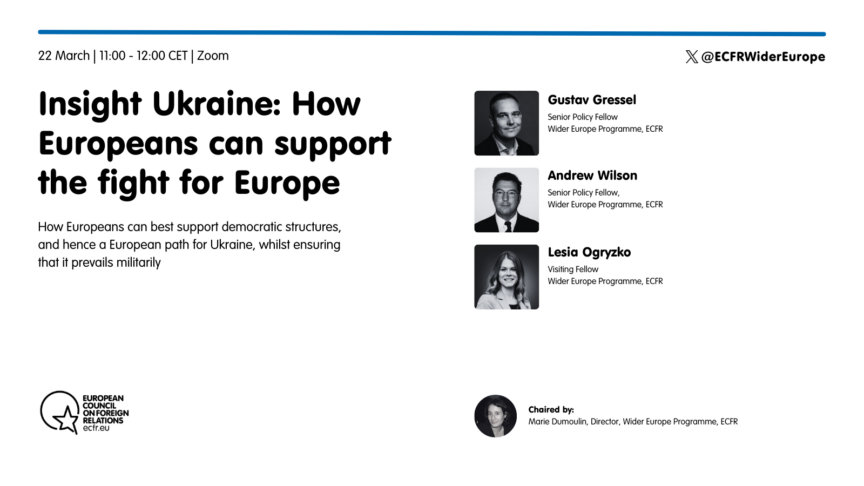
In challenging times for Ukraine, despite public appraisals following the second anniversary of the Russian invasion of Ukraine and the ten-year mark of the Russian…
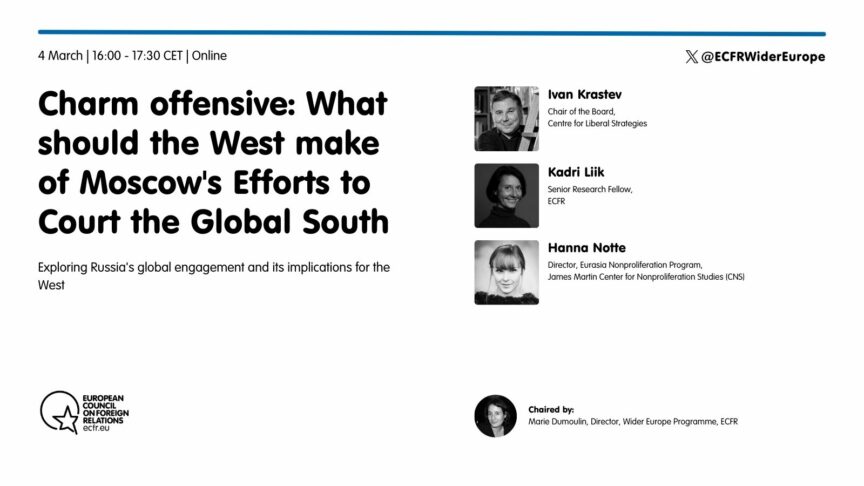
Exploring Russia’s global engagement and its implications for the West
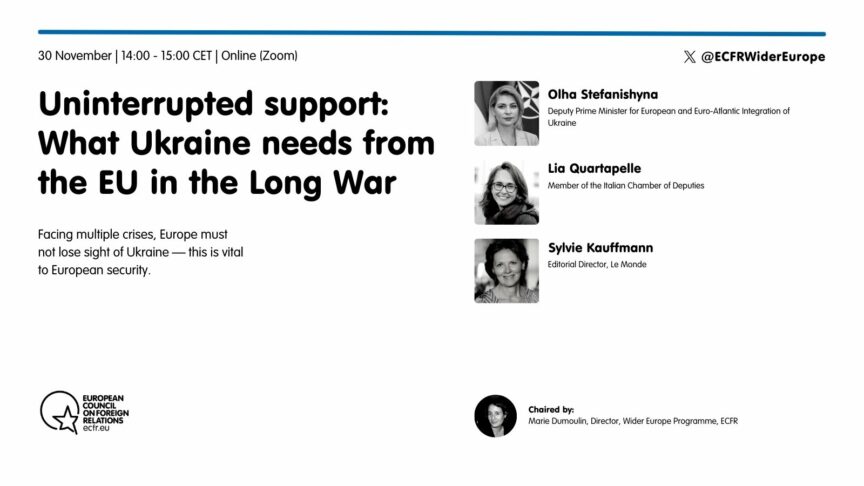
Ahead of the European Council in December where accession talks with Ukraine are expected to be opened, the European Council on Foreign Relations (ECFR) is…